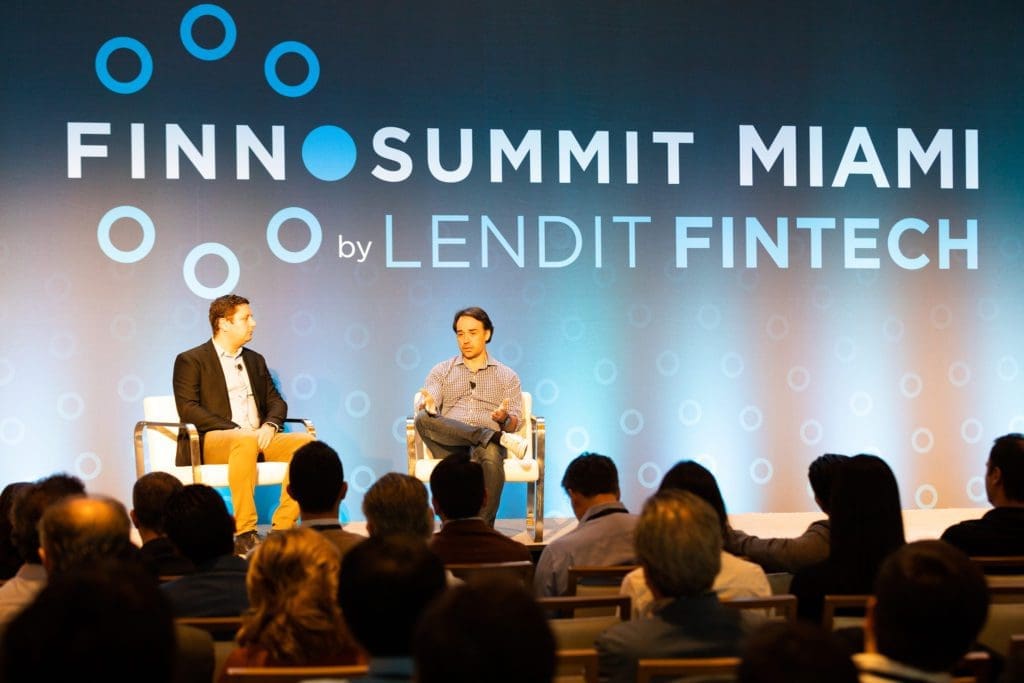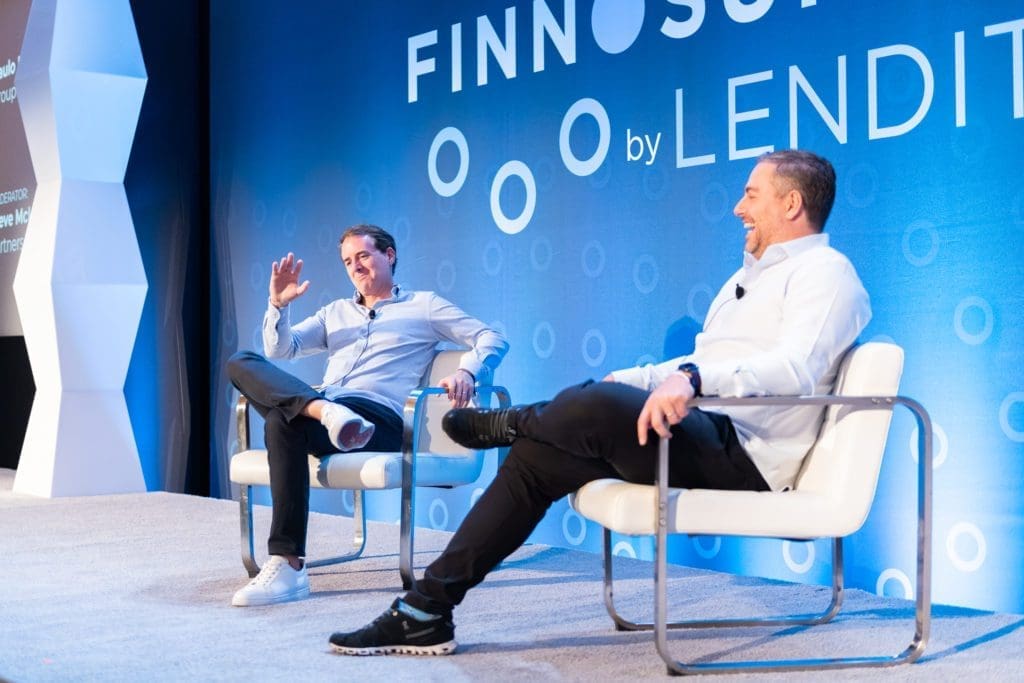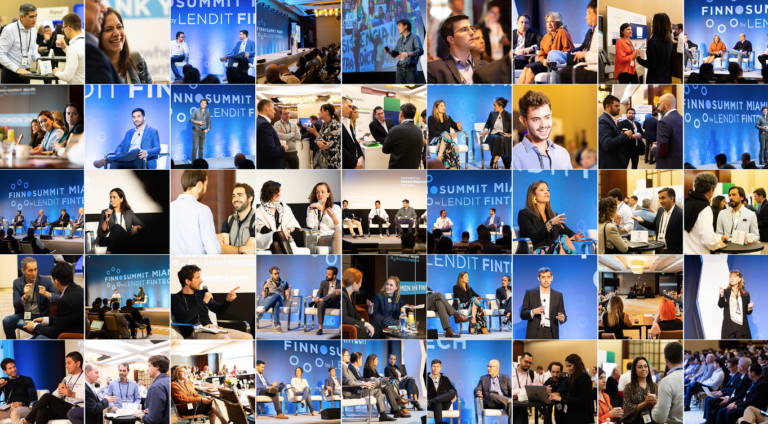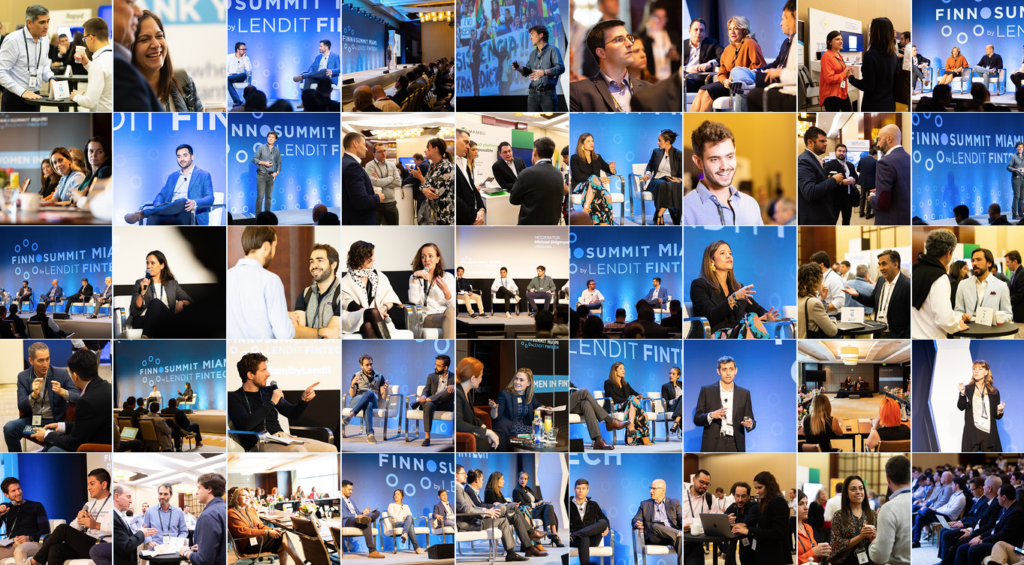There are many reasons why Latin America is the hottest region on the planet right now for fintech innovation. Venture capital dollars are pouring into the region like never before, 50% of the 630 million in the region are unbanked or underbanked, there is a strong entrepreneurial culture, the banking oligopolies in the region don’t serve their customers well and the penetration of smartphones means the population is ready to embrace digital finance. These are just some of the things I learned this week at FINNOSUMMIT Miami by LendIt Fintech.
LendIt Fintech partnered with Finnovista, who have been doing Latin American fintech events for several years, to bring the first ever LendIt event dedicated to this region. We just wrapped up two successful days with over 700 fintech enthusiasts at the JW Marriott Marquis in Miami. The place was buzzing on both days and dozens of people came up to me and told me how glad they were that LendIt finally decided to have an event for this region. It was also an opportunity for me to meet many of the leading players in person and immerse myself in the challenges and opportunities of the region. Below are some of the highlights from the keynote stage.
We kicked off the event with Sergio Furio, the CEO and founder of Creditas, the leading Brazilian consumer lender that earlier this year received $231 million in equity funding from Softbank. Sergio said they decided to focus on secured lending because it is hard to automate and he saw an opportunity to create a differentiated company. He provided a unique perspective on why banks should work with fintechs – they are basically getting free innovation. Creditas has major ambitions as they expand into Mexico and introduce new lending products. They are even looking beyond finance to offer ancillary products. He ended with this: “The bank of the future is not going to be the bank of the past with a digital interface, it will look very different.”

Maria Ariza is the CEO and founder of Bolsa Institucional de Valores, known as BIVA, Mexico’s newest stock exchange that launched just last year. She pointed out that there are more entrepreneurs in Latin America than any other region and many struggle with access to capital; the existing IPO process in Mexico is costly and slow, with the average cost of 3.5% of the money raised. BIVA already has a 16% market share in Mexico as they have built a trading system powered by Nasdaq. There are only 270,000 individual brokerage accounts in a country of 130 million and Maria is out to change that. Equities outperform most other investments and developing markets outperform developed markets so as the middle class expands in Mexico this will be the logical place to invest.
Clip has been called the Square of Mexico and it is another Softbank-backed company. It offers a mobile card reader that plugs into smartphones similar to what Square launched in the US over a decade ago. Today, any small business in Mexico can offer more payment methods through Clip than Walmart Mexico. Adolfo Babatz, the CEO and founder of Clip, was heavily involved in the new Mexican fintech legislation that came out last year. He said that the first draft of the regulation would have been great for fintech and could have transformed the country but once everyone had their say it was very different. It will actually make it harder for fintechs to disrupt incumbent businesses in Mexico. About the only good thing about it is that at least it provides regulatory certainty.
Anabel Perez is the CEO and co-founder of NovoPayment, a banking as a service platform based in Miami but serving fintechs and banks throughout the Americas. Their APIs can help launch a new digital banking platform in just six months. They have created 100 APIs and have built a network across ten markets in Latin America. She said there are only two types of incumbent financial institutions today, those that are currently working with fintechs and those that will be soon.
One of the most interesting sessions of the event was the investor panel, where we heard from the people making the decisions on the ground on whether to invest in Latin American fintech companies. Everyone acknowledged that the introduction of Softbank and their $5 billion Latin American fund has led to more and bigger deals. Some businesses are getting funded today that would not have been a year or two ago. It used to be very different for Latin American fintechs to obtain growth capital, it usually meant traveling to the U.S. or Europe. There was an acknowledgement that higher valuations can be dangerous as it creates a need for flawless execution in order to keep the valuation growing. One interesting trend that was discussed is the rise of embedded finance where finance and non-finance will converge.
Nico Shea, the CEO and founder of Cumplo, a Chile-based small business lending platform, gave a passionate presentation about inequality in LatAm. He directly addressed the unrest that has been happening throughout the region in recent weeks and said that one of the root causes is the cost of capital. For small businesses in Chile the cost of capital has been so high as to be almost immoral (his words). There is a $1.4 trillion credit gap for small businesses in LatAm according to McKinsey and Cumplo is trying to address this gap.
We heard from a panel of regulators representing the three largest countries in LatAm: Brazil, Mexico and Colombia. Colombia recognizes the power of fintech to help with financial inclusion and they have taken a proactive approach with an innovation hub and a supervisory sandbox. The Mexican Fintech Law that became effective in 2018 created a committee focused on innovation with the goal of adapting the regulations to new technologies. In Brazil the challenge they grapple with is trying to make sure they fully grasp the potential of the technology. There is a focus on anti-money laundering in all countries and the technology that can help detect these transactions.
One of my favorite sessions of the event was with Benjamin Gleason of GuiaBolso. They have the leading personal financial management app in Brazil with six million users, gaining most of these users by word of mouth. When people start using the app they see a 2.5x increase in savings in the first six months. They get a complete financial picture of their customers so can suggest a personal loan instead of an overdraft. Brazil is several years away from the true start of open banking but GuiaBolso is well positioned to take advantage of it when it happens.

The most talked about company over the two days was Softbank. So, it was a packed house on the second morning when Steve McLaughlin of FT Partners interviewed Paulo Passoni, the Miami-based Managing Investment Partner of Softbank. They have committed $2.5 billion of their $5 billion LatAm tech fund. They have already picked through the obvious investments in LatAm, so deploying the rest of their capital will take more time. Their thesis is to invest in later stage companies with positive unit economics where their investment will likely be the last money the companies need. Unlike many Softbank investments in the rest of the world they prefer it when other investors join them in LatAm as they feel they can learn a lot from other funds.
David Poritz is the CEO and founder of Credijusto, the leading SME lending platform in Mexico. He was interviewed by Mariano Carranza of Goldman Sachs, as Credijusto was Goldman’s first investment in LatAm fintech. Credijusto believes in a diverse set of products, they already offer equipment finance and secured term loans and they want to expand to provide a full stack of SME financing solutions. Poritz said that banking in Mexico today feels like the 1980s or 90s in the USA with slow processes and offline mentalities. He said there are three components for building a successful fintech business in Mexico today: speed, flexibility and building an amazing customer experience.
I think the most impressive company on our entire agenda was Rappi, the fastest growing “super-app” in LatAm. Juan Pablo Ortega is one of the co-founders of Rappi, based in Colombia, and he told the fascinating story of the company’s founding where they wanted to get parmesan cheese delivered quickly but there was no such service. So they built one. They built the largest delivery business in LatAm with 150,000 couriers serving 13 million customers. They have branched out into financial services based on customer demand, saying it should be just as easy to order a debit card as it is a hamburger. They now deliver debit cards to new customers in less than 30 minutes. They want everyone in LatAm to have a bank account and they see Rappi as a conduit for that change.
Ingrid Vanderverldt is the founder of Empowering a Billion Women and she shared the inspiring story of how she went from being broke to building a company worth a billion dollars. She talked about the importance of building partnerships and finding the right mentor to help you. You need to ask three questions when reaching out to potential partners: What is in it for you? What is in it for me? What is the timeframe and the deliverable? If you can get clear answers on all three questions, then follow up in a timely fashion you will be well on your way to establishing successful partnerships.
Manolo Sanchez is the former Chairman and CEO of BBVA Compass and he gave the traditional banking perspective on fintech. The advantage that fintechs have is that they can move fast, they have a tolerance for error and are focused on customer experience. These are all weaknesses for banks. But he warned that consumers don’t want 50 finance apps on their phone, they are looking for a more cohesive experience than that. He thinks that real estate is the next big play for fintech and he remains bullish on blockchain technology.
Terry Angelos is the Global Head of Fintech for Visa and he talked about the potential for growth in the LatAm market. There are now more smartphones than bank accounts in the region and that in itself presents a unique opportunity for fintech. Changes are happening fast. You can now use online tax data in Mexico for underwriting, something you could not do five years ago. Brazil has been at the forefront of point of sale lending for many years while it is just starting to takeoff in other regions. He said that Visa brings a lot of expertise when it comes to international expansion for fintechs. There is $120 trillion of business to business payments every year and most of it is offline and manual still. This is a huge opportunity as businesses are demanding that those become digital.

Visa also held their annual Visa Everywhere Initiative startup competition where 12 finalists each pitched for five minutes on the keynote stage. This was part of a months long process with nearly 200 applicants that were whittled down to 12 finalists who all participated in a five week immersion program in Miami culminating in presenting here. All the presentations were excellent, and the deserving winner was Flexio, a checkout technology company that is pioneering the next generation of point of sale financing. They received a $50,000 check, or what looked like an oversize Visa debit card, from Visa for winning the contest.
Those were some of my takeaways from the keynote stage. Of course, there was plenty more content with tracks devoted to lending, digital banking, payments and the cutting edge of fintech where more great insights were shared. Being a LendIt Fintech event networking played a big role with over 1,400 meetings taking place in our dedicated Brella area. The evening networking events were also packed with people connecting in a relaxed setting that made the most of being in Miami in December.

It was a whirlwind couple of days and my head is still spinning from all that I learned. It felt a lot like the early LendIt USA events in 2013 and 2014 where the enthusiasm was palpable and everyone had the sense that this was the start of something big. Latin America is a huge market that is still relatively untapped. There will be some very large fintech businesses created there and LendIt Fintech, in our partnership with Finnovista, is contributing to helping these companies reach their potential.



